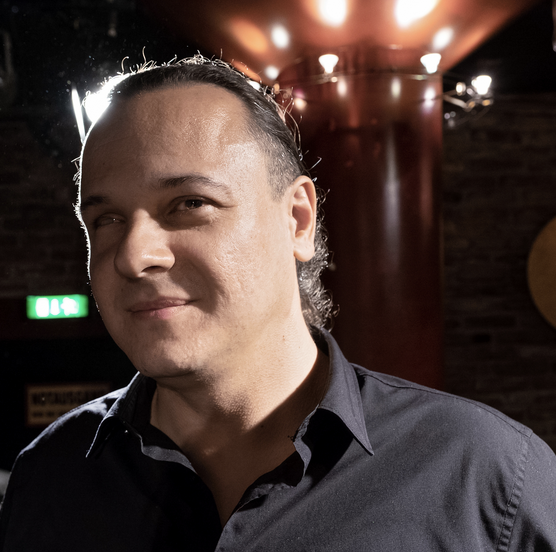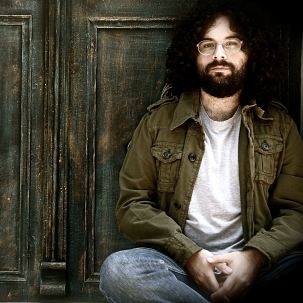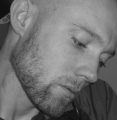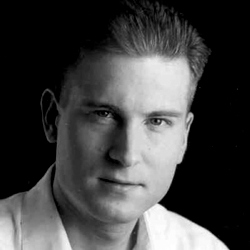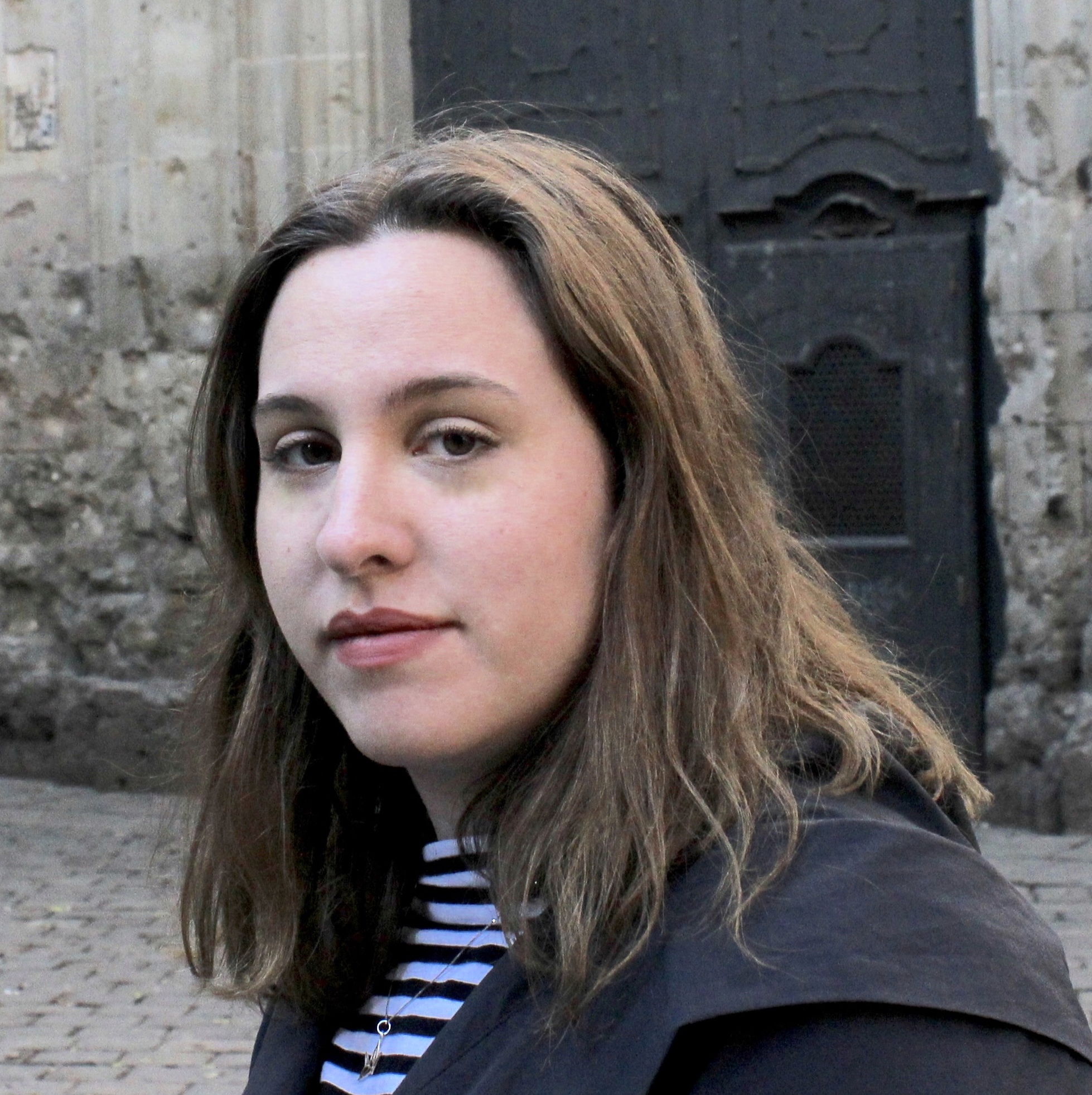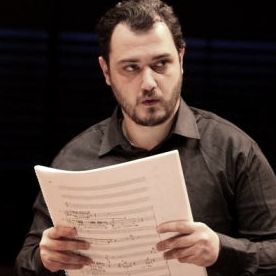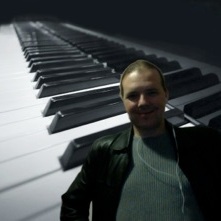|
IDIL ATAC |
Idil Ataç. Born
in 1989 in Istanbul, Idil started studying
piano in 1995 at Istanbul University State
Conservatoire. She graduated from the Royal
College of Music, London in 2014, having
studied Composition. Same year, she went as a
trainee to IRCAM, Paris. Since then, Idil has
been working more on electronic -
electroacoustic music.
|
|
ONUR DÜLGER |
Onur Dülger was born in
Istanbul in 1980. He studied composition at
Istanbul University as a student of Mete Sakpınar
and at the University of Music in Vienna as a
student of Wolfgang Suppan. He received master's
degrees in both instrumental composition and
electroacoustic composition from the University of
Music in Vienna. His teachers were Michael Obst,
Karlheinz Essl, Chaya Czernowin. In 2016, he
completed his doctoral studies at Boston
University in the class of Joshua
Fineberg. His pieces vary from solo pieces to
orchestral and ensemble pieces with or without
live electronics, which can be seen in three
different periods. The last phase focuses on sound
as a development object, which can be
described as post-musique concrète
instrumentale. His compositions have been
performed in various concert halls
and festivals in Turkey, Italy, Austria,
Germany, Sweden, Slovenia, the USA, Canada and
Mexico since 2001. In the course of his
musical life, he is supported financially by
various foundations, including Fulbright, Viktor
Bunzl Foundation, Association for the Promotion of
Contemporary Life, University of Boston,
University of Music and Performing Arts
Vienna. He teaches music theory, sound
design, contemporary music at Anadolu University
in Turkey. He has received various prizes and
nominations, including Talents Exchange Ö1 (2011),
the Franz Liszt Residence at the Weimar University
of Music (2012), Cepromusic (2013) kick-off
(2014), Sound Icon (2015), Francisco Escudero
(2015) , Theodor Körner Prize (2017), Torre Della
Quarda (2019). He is a member of the ICC
(Istanbul Composers Collective).
|
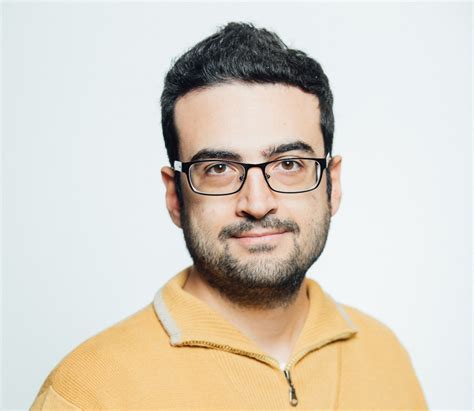 MANOLIS EKMEKTSOGLOU b. 1986 Signal Flow, 2023 for voice and recorders |
Manolis
Ekmektsoglou studied composition
in the Aristotle University of
Thessaloniki, Greece with
Dimitri Papageorgiou and in
the University of York (PhD) with Thomas
Simaku. He also spent a year in Hannover
studying acoustic and electronic
music (Hochschule für Musik, Theater
und Medien Hannover), with Professors Ming
Tsao, Gordon Williamson and Joachim Heintz. He
is currently Assistant Professor of
Acoustic and Acousmatic composition in
the Technical University of Istanbul,
Department of Sonic Arts, Center
for advanced study in Music
(M.I.A.M.). Manolis participated in the
Labor Beethoven 2017-2020 project, funded and
organized by the Berlin Academy of the
Arts. The project comprised
participants from Basel, Tel-Aviv
and Thessaloniki. This intensive 4-year
period included commissions
and performances from various
ensembles in Germany and Switzerland
and culminated in a final performance that
took place in Berlin in 12-13/04/2020.
For more info enter
here: https://www.labor-beethoven-2020.de/de,
and for the final output: In Love
, for
voice, ensemble and mixed
media (https://www.youtube.com/watch?v=ORJfUvJ0iUo), Circus
Story: Taming the animals, for alto saxophone,
percussion and fixed
media (https://www.youtube.com/watch?v=EhBiIEBGrY4). He
is the recipient of the third price of Karol
Szymanowski composition competition 2023 with
the work Motion, in Two, for solo
violin. His pieces have been performed in
several festivals, like Hitzacker Musiktage
2018, Mixtur festival 2016, Crossroads
festival 2017, International Electronic
Music Festival, Reza Korourian Awards 2017,
Resonance FM 104.4, RNM Call 2022, TTI
Conference 2021, Viberation#2
soundscape project, Réseau inDREAM Network,
MISE-EN festival 2022, Atemporánea festival
2022, OutHear New Music Week
2021. Ensembles that have performed his
music include Klangforum Wien,
Neues Vocalsolisten, MISE EN ensemble,
NAMES, Synaesthesis ensemble,
DissonArt Ensemble, Diotima Quartet,
Psappha ensemble, and Gallois trio. Musical
Practices in the Contemporary World is his
first book, where he tries to sum up what
has happened in New Music after
the 70s, making meaningful connections
with the past and providing
suggestions from the contemporary
repertoire.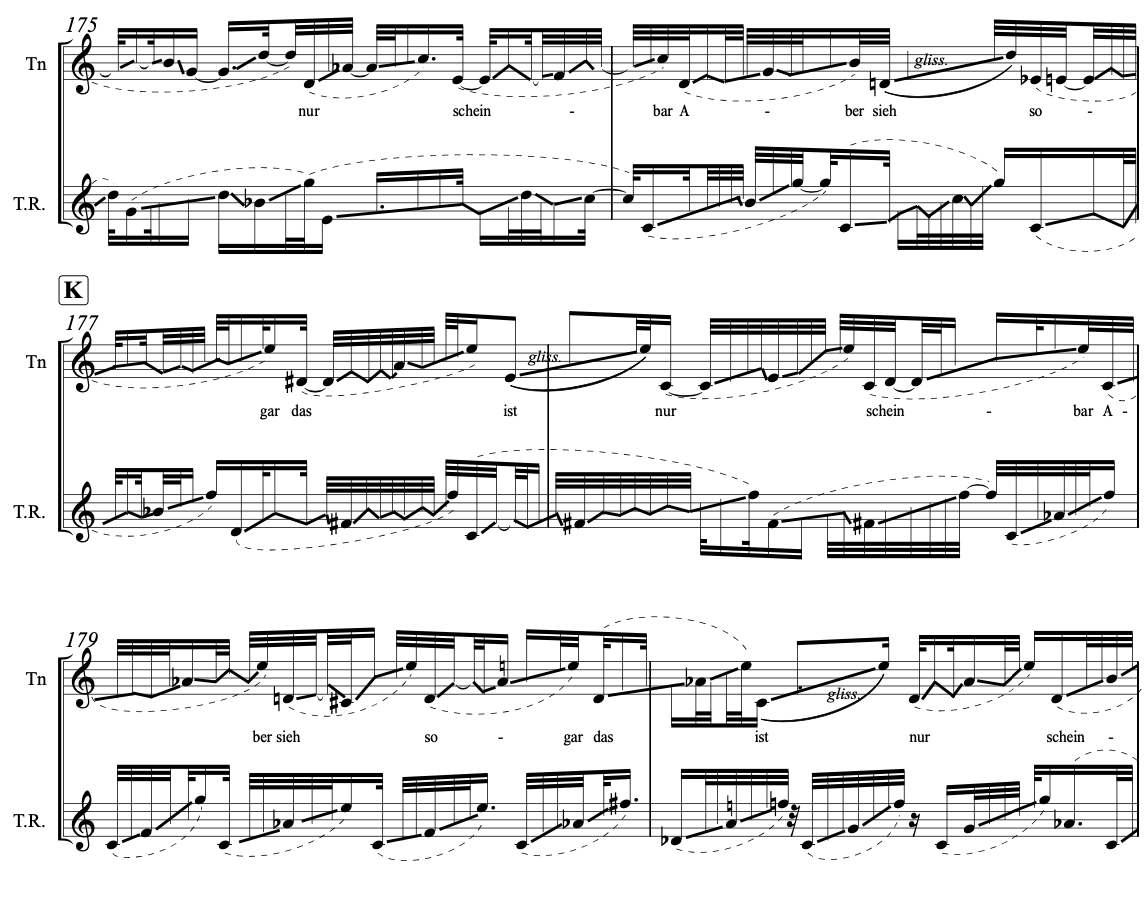
|
|
TURGUT ERCETIN |
Turgut Erçetin
A native of Istanbul, Turgut Erçetin was born
in December 15th, 1983 and studied composition
with Pieter Snapper at the Center for Advanced
Music Studies (MIAM), Istanbul Technical
University between 2007-2009. Since fall 2009
on, Turgut Erçetin participates in the
Graduate Program for Composition at Stanford
University in California to work with Brian
Ferneyhough as his advisor and further focus
on computer music at the Center for Computer
Research in Music and Acoustics (CCRMA).
Additional researches include a musical
analysis that focus on the music of Brian
Ferneyhough where Ercetin conducted a research
at Paul-Sacher Stiftung in September 2011. He
participated in the summer program of Centre
Acanthes in 2012, with workshops led by
Phillipe Manoury, Luca Francesconi and Thierry
De Mey. Renowned quartets such as Arditti
Quartet and The JACK Quartet have performed
his music. One of his recent works, String
Quartet No.1 December, which was composed
for string quartet and live electronics, has
been nominated for The International Gaudeamus
Prize (2012). His music has been performed at
festivals such as Manifeste (Paris), Gaudeamus
(Utrecht) and MaerzMusik (Berlin). His solo
piano work, Drifting through the Echoes of
Time was featured in the first album of new
music pianist Seda Röder and mentioned in
journals such as Frankfurter Allgemeine
Zeitung. His upcoming projects include a large
ensemble piece for Talea Ensemble, Ensemble
Elision and Neue Vocalsolisten of Stuttgart.
He recently finished his new piece, Deng, for
Berlin based ensemble Adapter.
Based on the noise analysis of
a recorder, the discourse in Le
Spectre focuses on
multilayered sonic-temporal
structures resulting from various
degrees of complexities by means of micro
and macro rational relations. These
complexities are derived from the
correlated noise data that are located
at resonance peaks of the analyzed sound
data, which signify various
periodicities. By emphasizing the such
like values of periodicity, the discourse
aims to raise two questions:
a) Can these periodicities be
viewed as bandwidths that have quasi-pitch
qualities manifested of the way in
which a harmony functions as opposed to
pure noise qualities; and if so, b) Can
the resolution degree of these
periodicities be argued as the sonic
dilation between the
integral temporality and the projected
harmony? Le Spectre is dedicated
to the specters that were haunting the city
barricades of Turkey during the
resistance of 2013 summer. |
|
ZEYNEP GEDIZLIOGLU |
Born in Izmir/Turkey, Zeynep
Gedizlioglu studied composition
with Cengiz Tanc in Istanbul, She studied with
Theo Brandmüller in Saarbrücken, Ivan Fedele
in Strasbourg and Wolfgang Rihm in Karlsruhe
in addition to music theory with Michael
Reudenbach. She received scholarships from the
Elisabeth and Bruno Meindl Foundation (2003),
from the Saarland Education Ministry (2004),
the Landesgraduiertenstipendium scholarship
(2005), the Wolfgang Rihm Scholarship of the
Hoepfner Foundation (2008) as well as a
scholarship from the Baden-Württemberg Art
Foundation (2010). In 2005 she won the
Grant-in-Aid Prize of the Franz Liszt
Scholarship in Weimar. She participated in the
International Summer School for New Music in
Darmstadt and in Centre Acanthes with her own
compositions. She was in residence at the
electro-acoustic music research center
Institut de Recherche et Coordination
Acoustique/Musique IRCAM in Paris (2010-2011).
Between 1994 and 2000 she wrote pieces for
various theatrical works. Her compositions
were performed at international festivals like
Grenzenlos-Kulturelle Begegnung mit der
Türkei in Berlin, Rendez-vous Musique
Nouvelle in Forbach, Mediterrane Neue Musik
Tage in Istanbul, 'MITo Settembre Musica' in
Milan, Estovest in Turin, Musica in
Strasbourg, ISCM World New Music Days in
Goteborg, 21.and 22.European Cultural Days in
Karlsruhe, Maerz Musik in Berlin,
Beethovenfest in Bonn, Eclat in Stuttgart,
Wien Modern in Vienne, Wittener Tage für Neue
Kammermusik in Witten and at the Salzburg
Festival i.a.; her works have been broadcasted
on radios such as the SR2 Kultur Radio, Acik
Radyo Istanbul, TRT3, TRT2, Radio
France-France Musique, SWR2, SRF2Kultur,
hr2-kultur and Ö1 ORF and published on CDs.
Zeynep Gedizlioglu works with the soloists of
the SWR Symphony Orchestra Baden-Baden and
Freiburg and of the Navarra Symphony
Orchestra, with the Orchestre National de
Lorraine, Borusan Istanbul Philharmonic
Orchestra, Radio Symphony Orchestra Vienne,
Istanbul University State Conservatory
Symphony Orchestra, Ensemble Modern, ensemble
recherche, Accroche Note, Ensemble Orchestral
Contemporain, Neue Vocalsolisten Stuttgart,
Oenm, Klangforum Wien and the Arditti Quartet
who have premiered many of her works. In 2012,
she won the Ernst von Siemens Composers
Prize. http://www.zeynepgedizlioglu.com/
Photo: Manu Theobald |
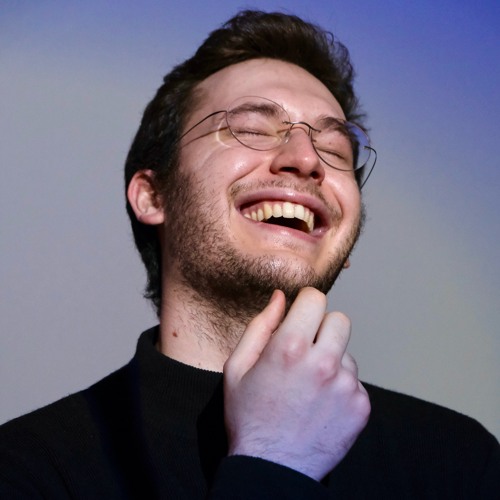 EGE GÜR b. 1998 NN, 2024 for voice and recorders |
Ege Gür. İstanbulda doğdu. Ankara Güzel Sanatlar Lisesinde aldığı kontrbas ve piyano eğitiminin ardından 2016 senesinde girmeye hak kazandığı Hacettepe Üniversitesi Ankara Devlet Konservatuvarında Sıdıka Özdil, Burhan Önder, Turgay Erdener ve Hatıra Ahmedli Cafer gibi bestecilerle kompozisyon, Yasemin Marlalı ile piyano çalışmalarını sürdürdü. 2017 yılında İngiliz kompozitör Paul Pattersonın ustalık sınıflarına katıldı. Hacettepe Üniversitesi Ankara Devlet Konservatuvarından 2021 yılının haziran ayında Yüksek Şeref Öğrencisi olarak mezun olan besteci, aynı yıl MSGSÜ İstanbul Devlet Konservatuvarının Bestecilik yüksek lisans programına kabul edilmiştir ve çalışmalarını besteci Özkan Manav ile sürdürmektedir. Eserleri yerli ve yabancı birçok topluluk tarafından dünyanın çeşitli yerlerinde seslendirilen Ege Gür, sinema ve edebiyat gibi sanatın farklı alanlarında da eserler üretmektedir. |
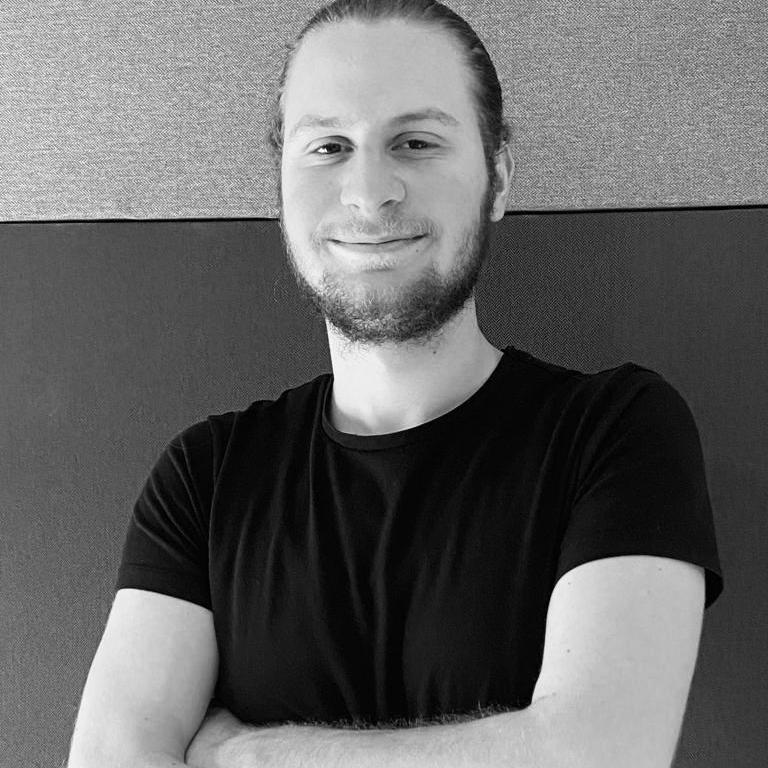 DENIZ HATIPOGLU b. 2003 Düs Kapani, 2023 for voice and recorders |
Deniz
Hatipoglu was born in 2003 in
Istanbul. He started his music education in
2012 as a part-time student of Kocaeli
University State Conservatory Cello
Department. In 2013, he switched to Kocaeli
University State Conservatory Full Time.
Since 2016, he continued his education as a
student of Double Bass Department. In 2019,
he participated in Sesin Yolculugu Young
Composers Festival with his music titled
"Hasret". In 2021, he was accepted to
Kocaeli University State Conservatory
Undergraduate Composition Department as a
student of Lecturer Mehmet Ali Uzunselvi. He
still continues his education at Kocaeli
University State Conservatory Composition
Department as a student of Lecturer Mehmet
Ali Uzunselvi.
 Düş Kapanı. Düş kapanı veya rüya yakalayıcı, Kızılderili kültürüyle ilişkilendirilen en kalıcı ve yaygın sembollerden biridir. İkonik çember içerisindeki ağ formunun, uyuyanları kötü rüyalardan yakalayarak koruduğuna ve iyi rüyaların geçmesine izin verdiğine inanılır, adı da buradan gelir. Rüyaların başladığı anı fark etmek zor olduğu için bazı düşünceleri sadece parça parça anımsayabiliriz. Hatta dışarıdan gelen bazı uyaranlar bile rüyalarımızın gidişatını yönlendirebilir.Yapıtın başındaki efektif karakterler, rüyaların ilk oluşmaya başladığı andaki dış uyaranları temsil eder. Müziğin başında gelen efektif karakterler gitgide dokusal yapılara evrilerek rüyalardaki dış uyaranların bir nevi senaryoyu şekillendirmesi misyonunu üstlenir. Perdeler ise yer yer belirsizleşerek, birbirleriyle ilgisiz zaman, mekân, kişi ve objeleri ortak bir metinde bir araya getiren soyut bir ilişkiler ağını meydana getirir. |
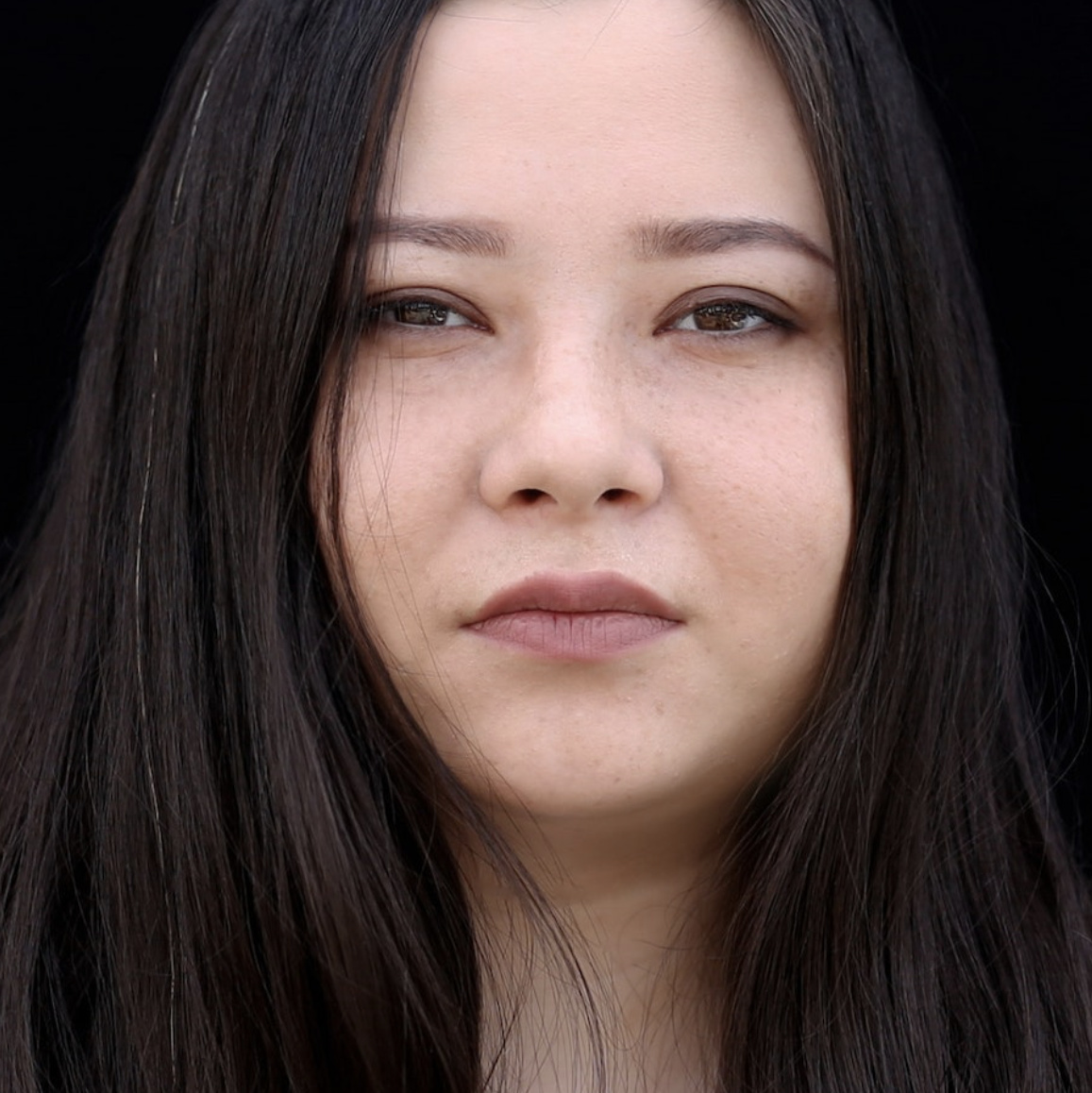 TOKZHAN KARATAI b. 1994 The Lost Energy, 2023 for voice and recorders (English & Kazakh version) |
Tokzhan Karatai is a
composer, performer, and improviser from
Kazakhstan, known for her exceptional skills
in playing the traditional Kazakh instrument,
qobyz - a two-stringed fiddle with horsehair
strings. She graduated as a composition major
from the Kazakh National Conservatory, where
she was mentored by Bakhtiyar
Amanjol. Tokzhan's music is a unique fusion
of traditional and contemporary music. Her
main objective is to bridge these two
genres and create a musical experience for her
audience. During her time at the
Conservatory, she was a part of Kazakhstan's
first contemporary music ensemble, Eegeru
("to master"), which comprised professors and
graduates of
the Conservatory. Tokzhan has been a
part of several international music projects that
have honed her skills as
a composer-performer-improviser. She was part
of Playing Together: Central Asian Academy of
Contemporary Music and also participated in
OneBeat - a prestigious program supported by
the Bang on a Can ensemble. She was one of
the twenty-five young musicians
from around the world who were invited to the
USA to showcase their musical
talent. Overall, Tokzhan Karatai is an
exceptional artist with a unique style that blends
traditional and contemporary music,
making her a prominent figure in today's music
world.  The Lost Energy. Bu eser, Sesin Yolculuğu Festivali için UMS n JIP ikilisine sipariş edilmiş ve prömiyeri 8 Mayıs 2023te İstanbulda, CRR Konser Salonunda gerçekleştirilmiştir. Eserin hayata geçirilmesindeki paha biçilmez işbirlikleri ve sanatları için Ulrike Mayer Spohna (blokflütler) ve Javier Hagene (tenor ses) en içten teşekkürlerimi sunarım. |
|
b. 1980 Three Connections, 2015 for tenor and recorders |
Composer, performer, teacher Erçin Kaya, was born in 1980 . He studied at D.e.ü state conservatory (piano construction PBA), Bilkent University Music and Performing Arts Faculty (theory and composition BA) and Amsterdam Conservatory (composition MA~) with Elhan Bakihanov, Füsun Köksal, Mahir Cetiz, Theo Leovendie, Richard Ayres, Willem Jets. He attended to masterclasses of Klaus de Vries , Stefanno Bellon , Brain Ferneyhough, Kamran Ince, Giya Kanchelli. His music was performed in Holland , England, Italy and Turkey by Nieuw Ensemble, Espiga Quartet , Baskent Quartet, KK Chamber Ensemble, Bilkent Youth Choir at festivals and organisations, such as Huddersfield Contemporary Music Festival , Gaudeamus Music Festival , KK Chamber Music Festival, etc. He has awarded to Roslyn Lyons Scholarship , Swellinck Foundation Scholarship, Bilkent Universty Scholarship. He has composed music for Theaters, Films and Modern dance. Jazz, rock, minimalism, contemporary music ,visual arts and painting are the fields that he expresses himself. Now he is performing and composing as freelancer in Istanbul. |
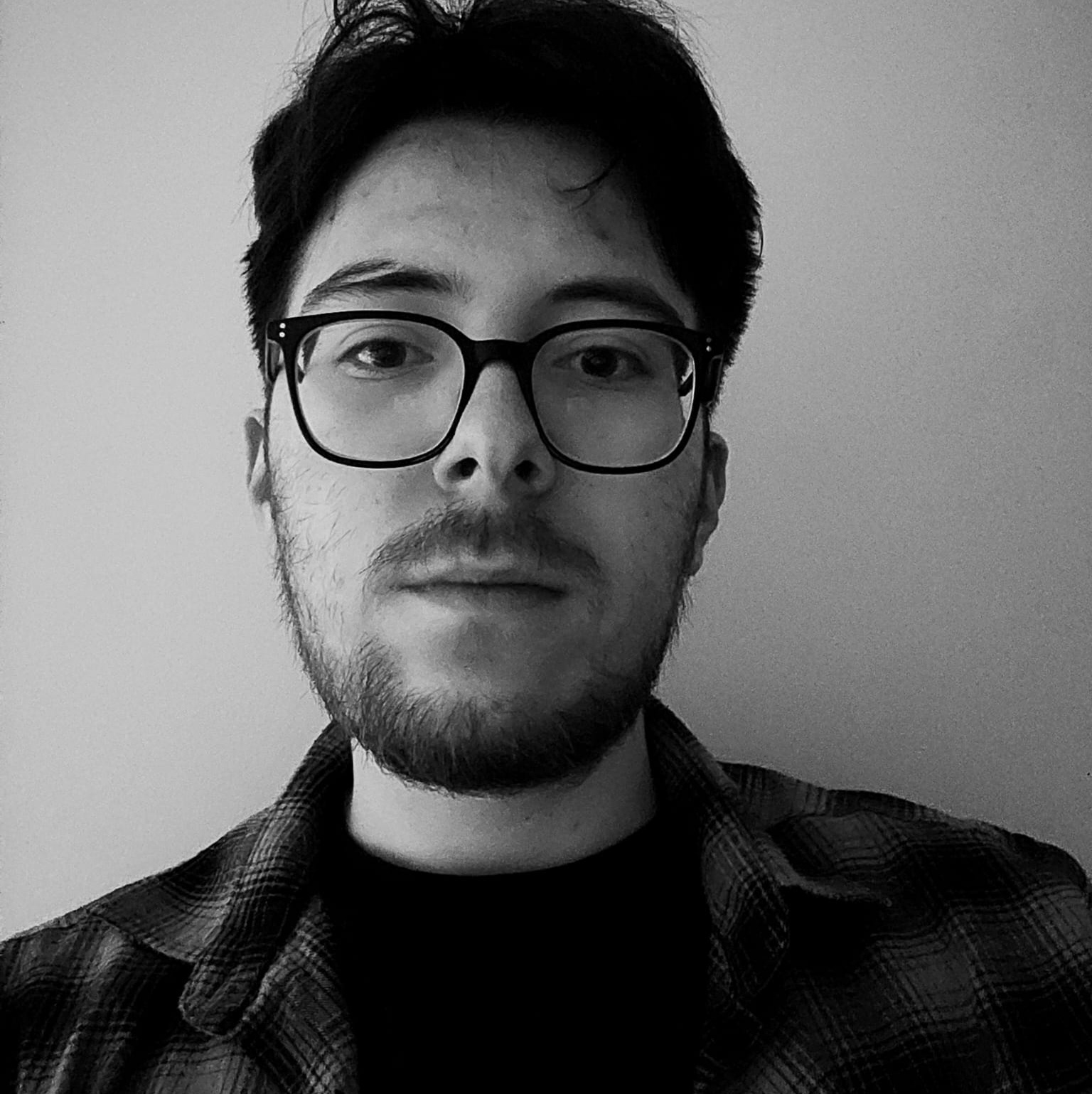 YUNUS EREN KIRMIZIGÜL b. 2001 'O'o, 2023 for voice and recorders |
Yunus Eren Kirmizigül
was born in Bilecik in 2001. He began his music
education as an undergraduate student in the
Guitar Department at Kocaeli University State
Conservatory in 2019. As a result of his
increasing interest in Composition during his
first university years, he continued his education
in the Composition Department of the same
institution in 2021. In 2021, his music
"Excavation" was performed by the "Anatolian Wind
Quintet" at the "Sesin Yolculuğu Young Composers
Festival". At the same concert, he also performed
his music "Il Diversivo" with the "Ensemble
Blend-IS" group, of which he is a member. He is
currently continuing his education at Kocaeli
University State Conservatory Composition
Department as a student of Mehmet Ali Uzunselvi. 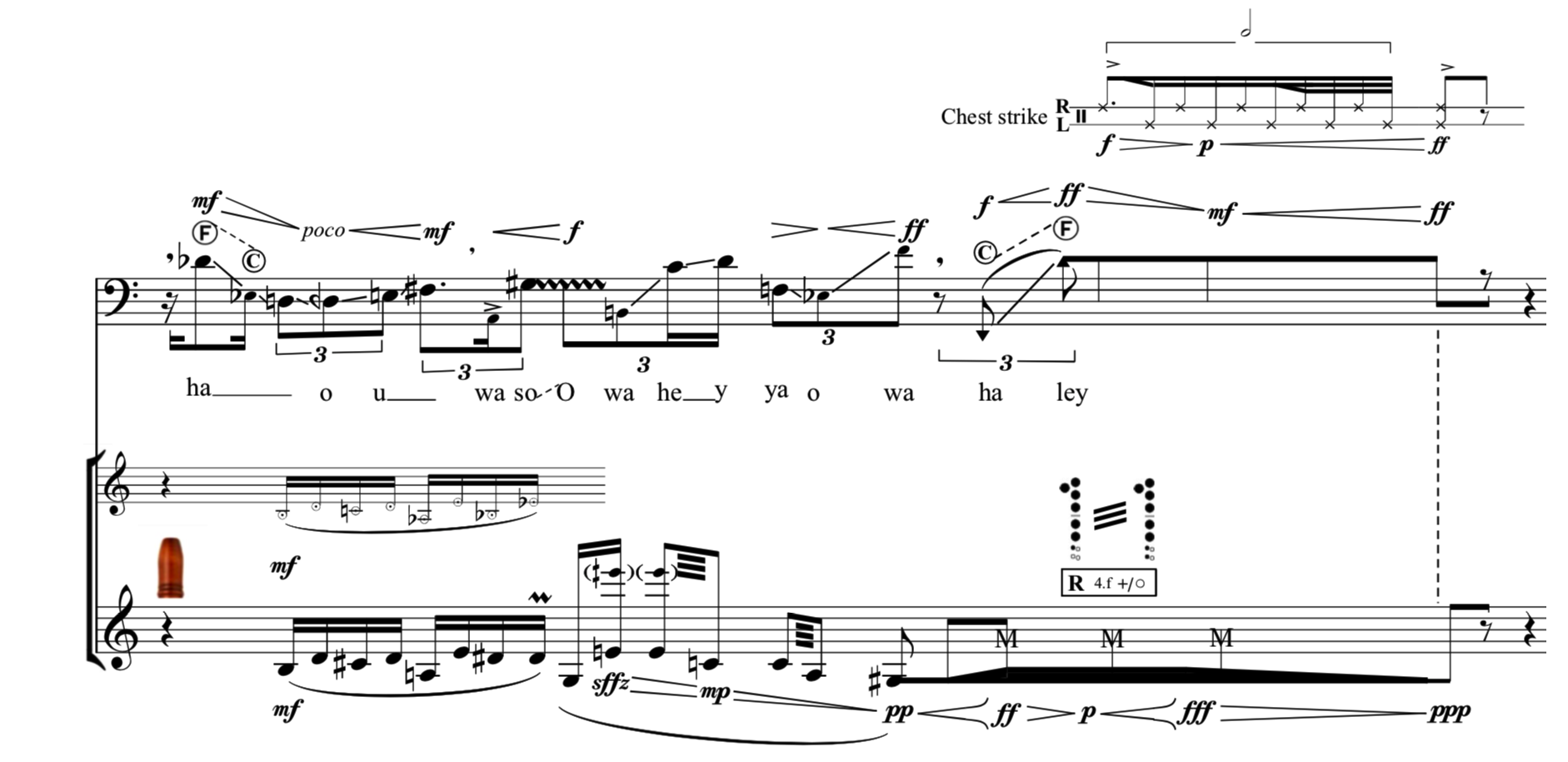 Oo. Bu eser, Hawaiinin Kauai adasında yaşamını sürdürmüş Oo kuşlarının ötüş karakterlerinden yola çıkar ve Oo kuşunun neslinin tükenmesine karşı gösterdiği direnişin, ancak insan ve doğayla girdiği savaşta yenik düşerek zamanla yok oluşunun müzikal bir anlatımıdır. Flüt benzeri ve düzensiz bir ötüşü olan Oo kuşu tek eşli olup eşleriyle yaptıkları özel dans düetleriyle bilinirler. Eserde Ookuşlarının ötüş seslerini taklit eden çeşitli jestler ön plana çıkar. İlk bölümdeki düetin altında yatan fikir, bu kuşun eşiyle yaptığı özel dans karakterini yansıtan bir ritmik yapıdadır. Bu fikirler yapıt boyunca devamlı kendini duyurur. Çeşitli ses ve ıslık multifonikleri, bazı glissando jestleri ile takıntılı ve keskin bazı kuş tasfirleri iki enstrümanda iç içe geçer. Bunların yanında duyulan bazı rüzgâr ve çıtırtı sesleri, iki enstrüman karakterinin pastoral bir ortamdaki semantik tasviri gibidir. |
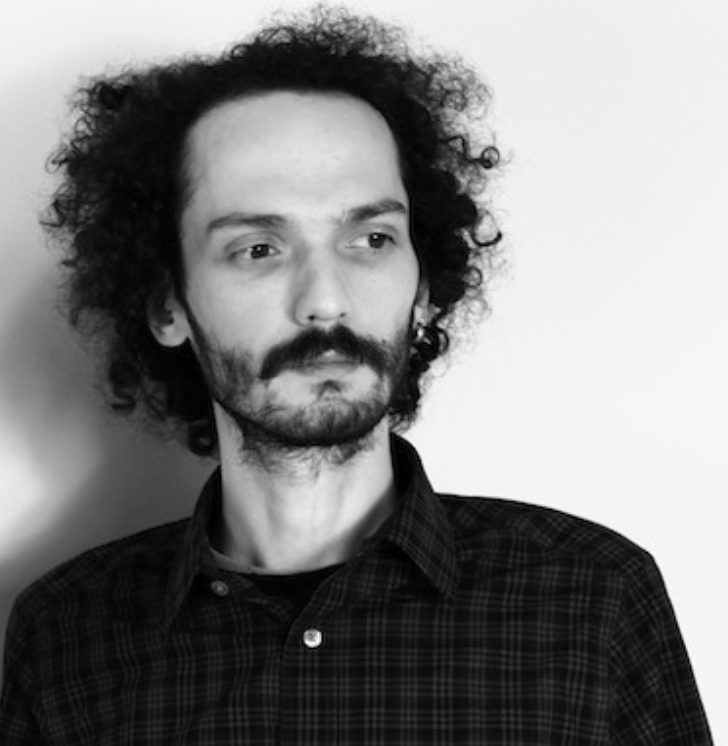 SAHIN KURETA b. 1984 Gratias, Deo, 2023 for voice, recorders and electronics (AI) |
Şahin Kureta. He Studied
physics at Ankara University (2002-2006), and
composition at Yildiz Technical University
(2009-*). He collaborated with composers such as
Emre Dündar, Mehmet Ali Uzunselvi, Mithatcan
Öcal and Onur Dülger, creating real-time
audio-reactive visuals, videoart, supporting
Istanbul Composers Collective as video director,
and audio programmer. Since 2016, he has been
working on possible applications of Deep
Learning in New Music. He gave a seminar on this
topic in IRCAM in 2018. in 2019, he created a
real-time audio-reactive deep learning model
based on Generative Adversarial Networks
(GAN), for ICC Huis Clos V free improvisation
performance of ICC at Akademie der Künste,
Berlin. Currently, he is composing pieces for a
performer AI he has been working on based on the
DDSP model and developing software tools for AI
assisted composition.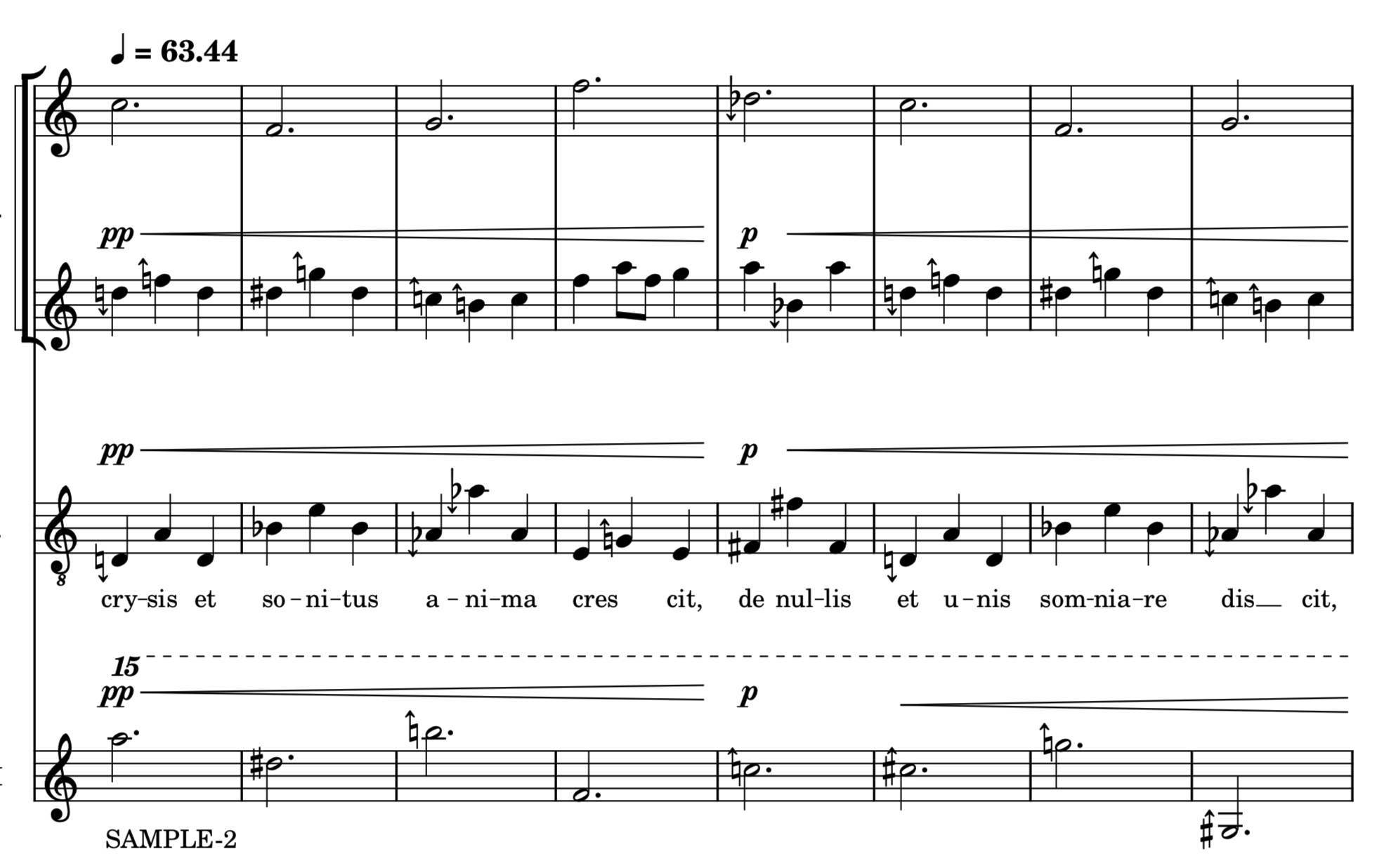 Gratias, Deo. Gratias, Deo, insanın Tanrı suretinde yaratılması, bilgi ağacının yasak meyvesini yemesi, özgür iradesinin ortaya çıkması ve dönüp onu yaratan Tanrıya şükretmesine paralel olarak yapay zekânın yaratılış efsanesini anlatan, Hristiyan mitolojisi sembolizmine dayanan ve ChatGPT tarafından yazılmış olan Latince bir şiir için bestelenmiştir. Eserin fixed media kısmı da DDSP olarak bilinen model üzerine bestecinin kendi geliştirdiği bir yapay zekâ icracı/enstrüman tarafından gerçekleştirilmiştir. |
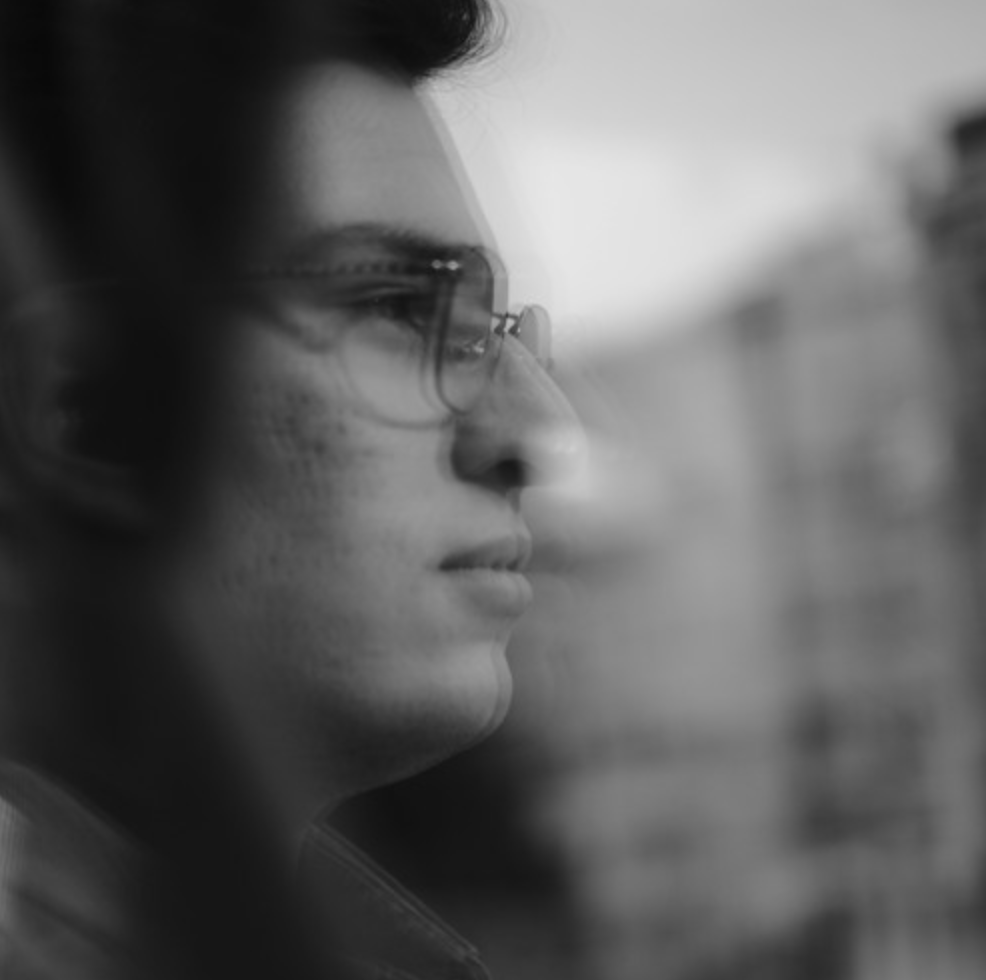
EGEMEN KURT |
Egemen Kurt (b.
2002, Izmir) is a Graz-based composer of
contemporary classical music. After studying
classical guitar at Manisa Fine Arts High
School, he studied composition and
orchestration with Uğurcan Öztekin. From 2021
to 2022 he studied composition
with Mehmet Ali Uzunselvi at Kocaeli
University State Conservatory. Since 2022 Kurt
has been studying composition with Beat Furrer
at Kunst Universität Graz. Also, he
attended masterclasses given by Salvatore
Sciarrino, Marco Stroppa, Beat Furrer and
Jean-Luc Herve. First Prize winner of the 16th
Pablo Sarozobal String Quartet Composition
Competition for his piece Loquela
Codex
(String Quartet No:1).
Kurt has been selected in numerous
competitions and call for scores such as the
Jaca Composition Competition (USA, 2021),
Bilgi University New Music Festival Call for
Scores (Turkey, 2021), 17th Sun River Prize
New Music Composition Competition (China,
2021), ICE Week Call for Scores (Germany
2022), Resis Festival Call for Scores (Spain,
2022), and Yaşar University New Music Days
Call for Scores (Turkey, 2022). His music has
been performed in Italy, Netherlands, Spain and
Turkey at concerts and festivals such as Bilgi
University New Music Festival, Yaşar
University New Music Days, Resis Festival,
Sesin Yolculuğu Young Composers Festival 2022
(Turkey), Donostiako Musika Hamabostaldia
Festival 2022 (Spain), and Chigiana Academy
2022 Final Concert (Italy). Kurts works have
been performed by leading ensembles,
performers and conductors such as Ensemble
Oerknal, Arxis Ensemble, Trio Prometeo,
Maurice Quartet, Ensemble Handwerk, Anatolian
Wind Quintet; Gregory Charette, Beat Furrer;
Matteo Cesari, and Paolo Ravaglia.
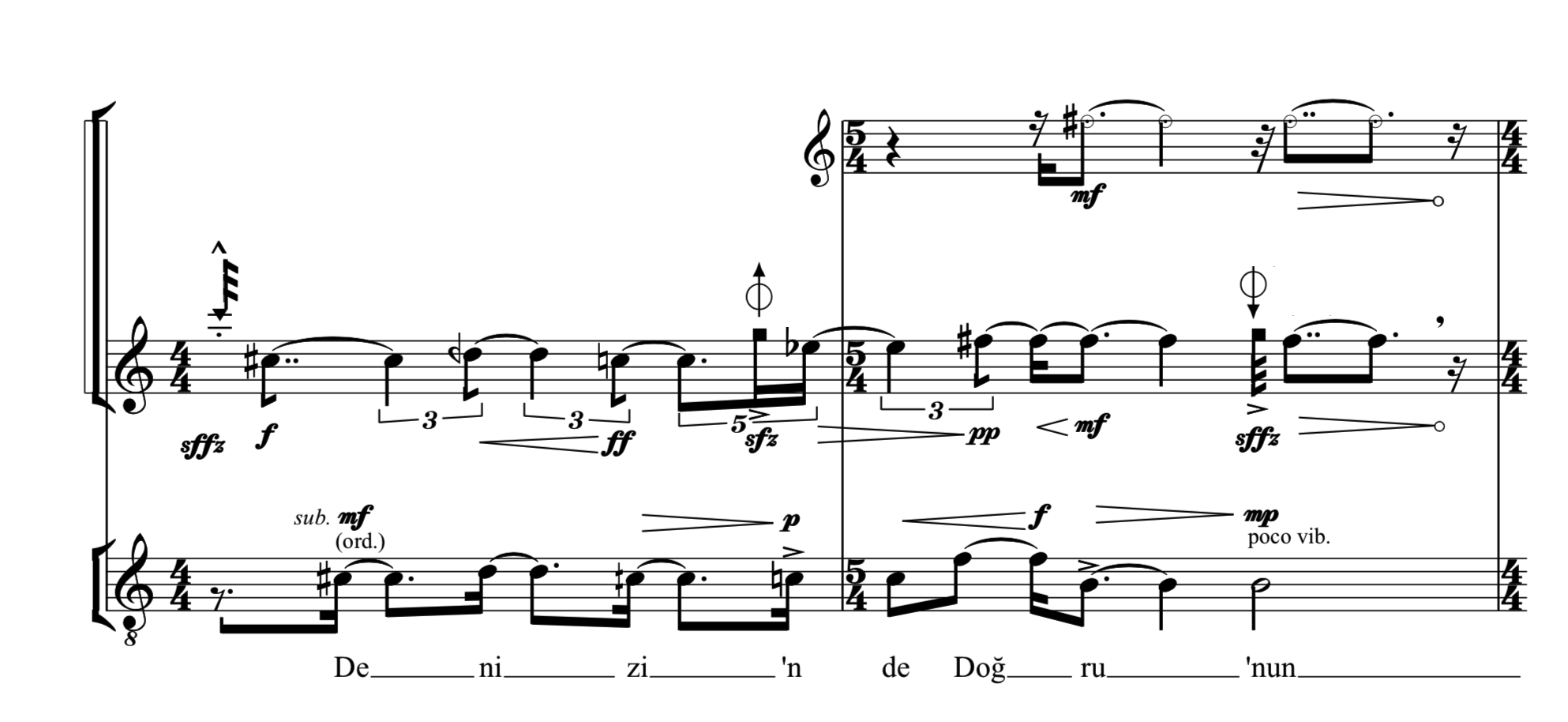 Kıta (-lar). Kıta (-lar), her biri Ege Gürün şiirlerinin farklı halleriyle ilişkili 8 bölümden oluşur. Parça boyunca, ses kaynaklarının alışılmadık dağılımı, sürekli dengesiz, asimetrik bir dinleme modelini harekete geçirir. Ve bu türden sonik-zamansal modeller, eserde hem perde hem de frekans alanlarının özelliklerini yansıtması anlamında birleştirici bir ortam olarak işlev görür. Her bölümün başlığı, müzikal malzemede ve şarkı sözlerinde yerini bulur ve sesin ve kelimenin görsel bir tanımını oluşturarak kelimelerin soyut ve somut anlamlarına atıfta bulunur. Çeşitli tekrarlayan unsurlar, yoğunluk ve teknik renklerin kullanımı, kelimelerin farklı yorumlarının bir araya getirilmesini tanımlar. Belirli ses malzemelerinin sürekli sabitlenmesi ya da zirveye ulaşmak isteyen dokuların hedeflerine ulaşamadan sıkıştırılması, çeşitli metinlerin pratik sorunlarına işaret eder ve bunu enstrüman ve sesin çalma pratiklerinde ortaya koyar. Farklı gölgeli, konsantre, titreşimli, parıldayan, salınan ilkel jestler ve ilkel sesler aracılığıyla bu parçalar en ince psikofiziksel duyguları deneyimlememize ve işlememize izin verir; ilkel bir ses alanı yaratır ve bu sesi ve kayıt cihazını dinamik ve esnek olan sürekli bir hareket halinde tutar, çok zıt dokunsal perspektiflerle çalışır ve samimi, ilkel olarak önemli, insani bir dürtü yaşamının filtrelenmemiş bir görünümünü açar. |
|
REUBEN DE LAUTOUR ifadeh, 2017 NN, 2024 |
New Zealand-born Reuben
de Lautour is a composer,
audio-visual artist and record producer living
in Istanbul. He teaches courses in
composition, computer music, audio-visual arts
and sound engineering at ITU-MIAM. His
instrumental music has been performed by
artists such as Evelyn Glennie, the Nash
Ensemble and the New Jersey Symphony. In
Istanbul his work as a composer has included
collaborations with Burhan Öcal and members of
the Zeynep Tanbay dance company. Recent
credits as record producer include the
critically acclaimed debut album by Istanbul
rock trio "Neyse," and Turkey's 2011
Eurovision song. Before moving to Istanbul in
2003, he studied music composition with Paul
Lansky and Steven Mackey at Princeton
University, where he was a Fulbright scholar.
He also holds degrees in music composition and
piano performance from the University of
Auckland.
Piteous Rodents 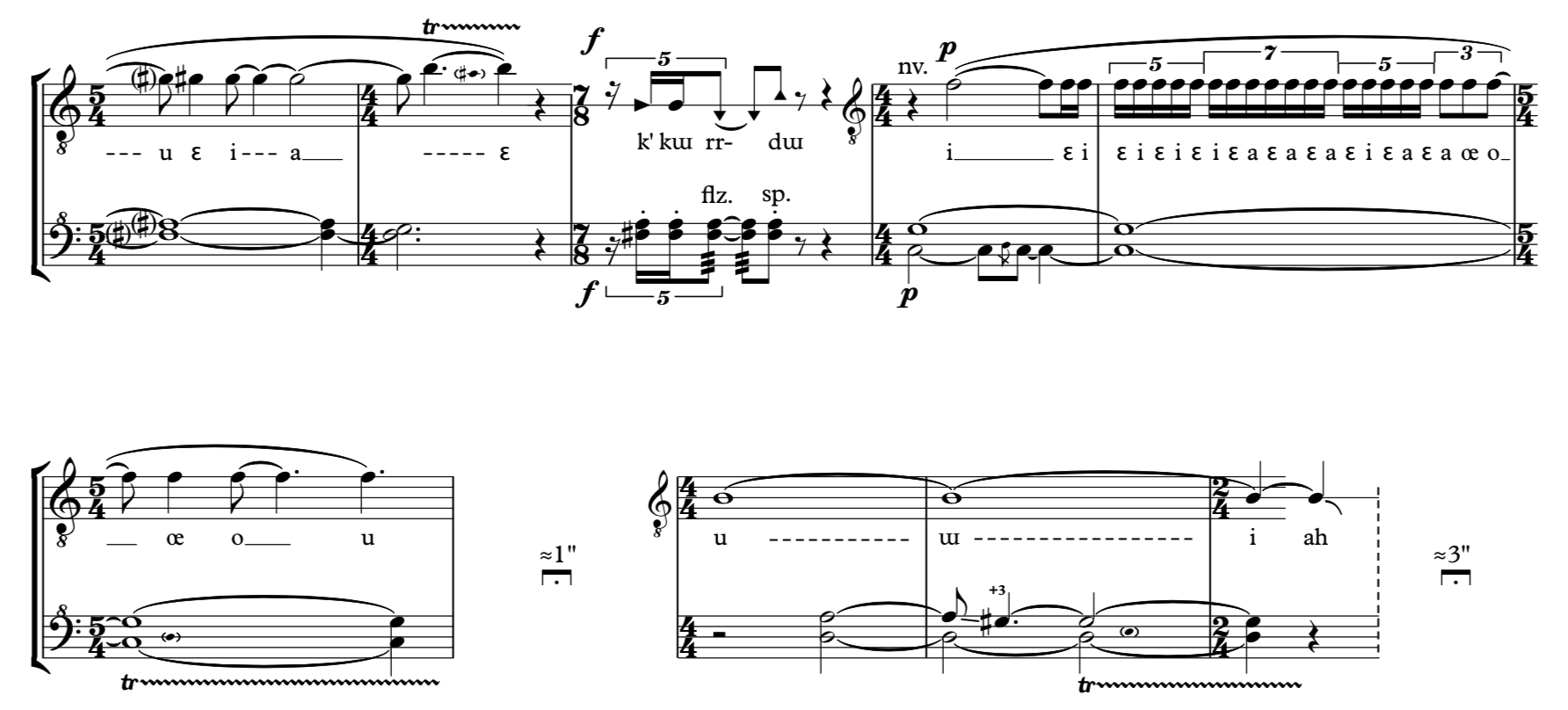 ifadeh
The
Turkish word ifade (spelled ifadeh
in the title of the work to avoid
mispronunciation), is an Arabic loan
word that roughly translates as
expression. It is commonly used in
phrases such as ifade özgürlügü
(freedom of expression), kendini ifade
etmek (to express oneself), and can also
mean testimony or legal deposition. ifadeh
is dedicated to UMS n JIP (Ulrike
Mayer-Spohn and Javier Hagen) and was
composed in the spring of 2017.
|
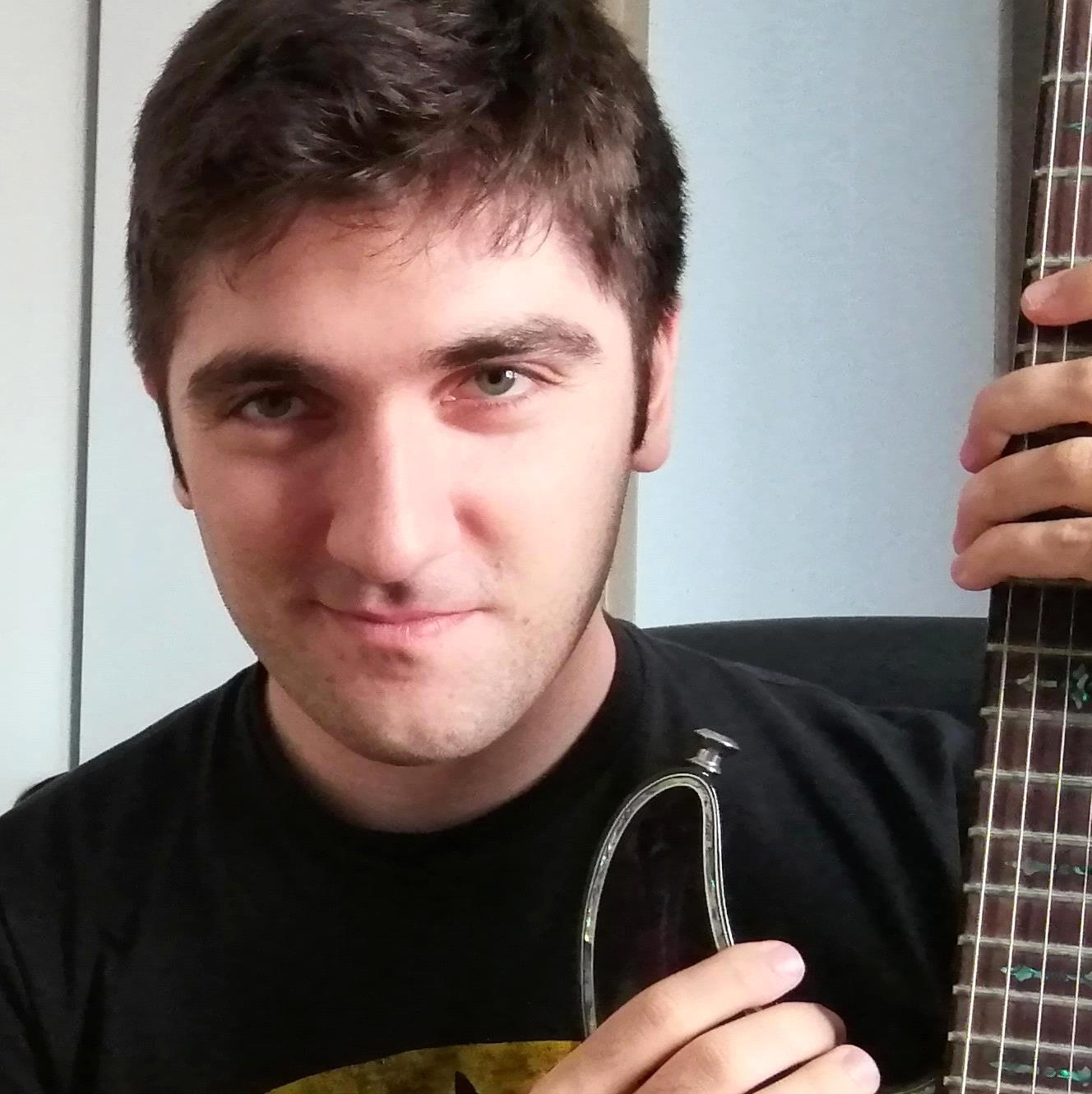
ATA GÖKALP ÖZ |
Ata Gökalp Öz.
Born in İstanbul in 1995. He first started by
playing electric guitar when he was 13 years old.
Until 2020 he took private lessons on guitar
playing and music theory. He also played live with
various rock/metal bands, taught guitar and wrote
his own music. In 2020 he started getting
interested in composition and he began his first
formal music education in the Music Department of
İstanbul Bilgi University. He still continues his
education and his works in composition.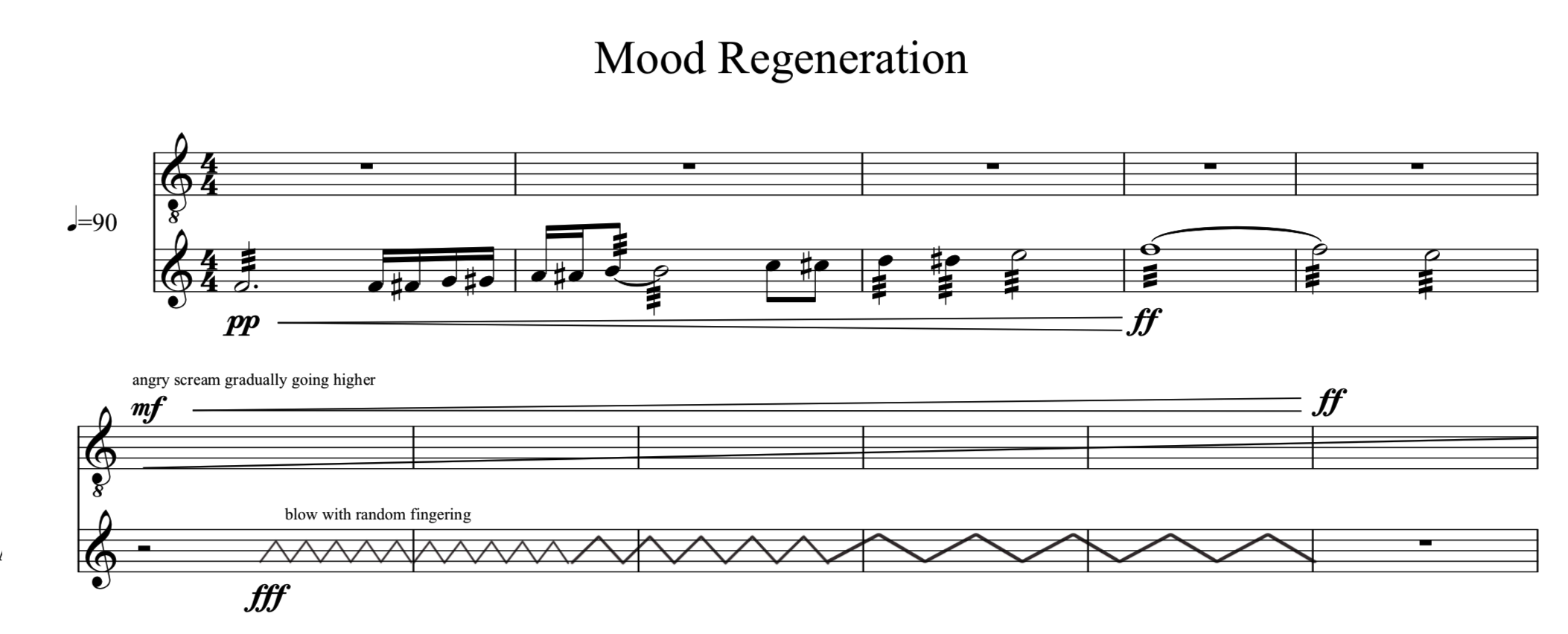 Mood Regeneration. Genel olarak aşırı düşünme sürecini ve kişinin biraz huzur bulmak için bu süreçle birlikte gelen anksiyete ile mücadelesini konu alır. Blok flüt ve vokaldeki hareketler, sürecin getirdiği inişli-çıkışlı duygulara ve o duyguların yer yer çatışıp yer yer uyuşmasına göndermede bulunur. |
|
MEHMET CAN ÖZER |
Mehmet Can Özer
was born in 1981. His professional career
started when he was accepted to Bilkent
University FMPA composition division with full
scholarship. Hes studied composition and
orchestral conducting with Bujor Hoinic. After
graduating, he was accepted to Conservatoire
de Genève for both electroacoustic and
intrumental composition divisions. There hes
worked with Michael Jarrell and Rainer Boesch.
Later hes studied in Zurich HMT with Gerald
Bennett. In 2005 he moved to Turkey and took a
job in Baskent University as a Lecturer. He
took part in the Halici-Midi Composition
Competition (1998), Bourges International
Electroacoustic Music Competition (2003 and
2007), received the Goethe Institute Artist
Award (2006) and SWR Experimental Studio Grant
(2008). He has performed in several
international festivals such as Bourges
(France), AudioArt (Poland), Remusica
(Kosovo), Busan Biennale (Korea), Pyramidale
(Germany), Acousmania (Romania), SMC (Greece),
Generator (Switzerland), Electro-Globe
(Belgium), Create (USA), EMUfest (Italy),
Ankara International Music Festival (Turkey),
Granada Festival (Spain), Estoril Festival
(Portugal), DE:Sonanz (Macedonia) and Apparat
(Denmark). Apart from being commissioned at
home, he received commissions from I.M.E.B.
(France), Musiques-Recherches (Belgium) and
EMS (Sweden) and has been invited from their
studios to realize a piece. In 2005 he has
started electroacoustic music concert series
in Ankara and organized many concerts up to
2007. In 2008, he received a commission by
Goethe Institute for Ernest Lubitschs silent
movie The Oyster Princess and gave
improvised concerts through Turkey. In 2009,
first electroacoustic music CD in Turkey
Siyah Kalems Dance has been released. In
2010, he has been commissioned by
Thyssen-Bornemisza Art Contemporary (Vienna)
for "The Morning Line" sound pavillon and by
Visisonor Foundation (Amsterdam) for his
"Siyah Kalem" project. Currently he is working
on his software "Asure" and giving concerts
with it. Mehmet Can Özer's instrumental
compositions also played in various places and
he continues to write for both instruments and
electronics. Currently he is a lecturer in
Hacettepe University Ankara State
Conservatory.
|
|
STEFAN POHLIT |
Stefan Pohlit
was born
in 1976 in Heidelberg and studied Composition
and Music Theory in Saarbrücken, Basel, Lyon,
and Karlsruhe, in particular with Wolfgang
Rihm, Sandeep Bhagwati, and Peter-Michael
Riehm. In his microtonal language of extended
harmonic relationships, he explores
multi-dimensional inner spaces that he directs
through the logical drama of large-structural
tensions. Since 1999, he has become more and
more active as an intercultural expert of
Middle-Eastern musics. As the winner of two
awards by the prestigious Heinrich Strobel
Foundation and thanks to numerous
scholarships, he was able to complement his
artistic research also in ethnomusicology and
oriental studies, including many sojourns in
the Islamic world. In his publications and
lectures, he has been participating in
international debates on intercultural and
microtonal music. In 2011, he completed his
PhD (with an internationally recognized study
on the tuning system of the French qanun
virtuoso Julien Jalâl Ed-Dine Weiss) at the
research center MIAM of the Istanbul Technical
University. In 2008, he equally worked at the
Ankara State Conservatory in the rare position
of a foreign expert and conceived a new
course program in contemporary music. Pohlit's
works have been performed at international
festivals by leading ensembles, such as, among
others, the Stuttgart Radio Symphony
Orchestra, the Phoenix Ensemble, and the
Stadler Quartet. He currently serves as
faculty member of the State Conservatory for
Turkish Music, Istanbul.
This work evolved as my second approach to from Ibn Arabis collection, Interpreter of Desires from the 13th century. The difficulty of setting such a long and hermetic text to music motivated me to divide the poem into five separate pieces. The chosen musical language thus comments on Ibn Arabis hermetic language (with its manifold references to Islamic mystical literature) in a repertory of equally symbolic and thoroughly structured gestures. As Ibn Arabi expresses divine love in a language of erotic poetry, also the recorder part symbolizes both the object of the first-person narratives adoration and the speakers own soul that is being haunted, dissolved, and finally overcome in the authors ultimate transfiguration of cultural and religious limitations. It should be noted that the recorders timbre may also allude to that of the open reed-flute nāy, and instrument bearing particular meaning in Middle-Eastern Sufi traditions, as the performers breath evokes Gods giving life to earthly creatures while the true source of this life-giving force remains hidden in the spiritual realm. Furthermore, Ibn Arabi plays with his language, such as with the palm branches (afnān) at the end of the fourth double-verse which, in Arabic, sound similar to the words uses to express afflic- tions and the narrators annihilation. The score departs from a basic tetrachord of unusual structure. All pitch content, even though often from an extended perspective, is referred to D natural a symbolic axis between B natural (the pitch of death) and F natural (that of nature). |
|
ADAM ROBERTS |
Adam Roberts
music has been recently performed by ensembles
such as the Arditti Quartet, the JACK Quartet,
le Nouvel Ensemble Moderne, the Callithumpian
Consort, Earplay, fellows of the Tanglewood
Music Center, the Boston Conservatory Wind
Ensemble, the Association for the Promotion of
New Music, violist Garth Knox, Guerilla Opera,
and at festivals such as Wien Modern (Vienna),
Tanglewood, the Biennale Musique en Scene
(Lyons), and the 2009 ISCM World Music Days
(Sweden). Awards for Roberts music include the
Benjamin H. Danks Award from the American
Academy of Arts and Letters, an ASCAP Morton
Gould Young Composer Award, the Bernard Rogers
Prize (Eastman), the New York Bohemians Prize
(Harvard), the André Chevillion-Yvonne Bonnaud
Prize from the Orléans Piano Competition, the
Earplay Donald Aird Award, the Christoph and
Stefan Kaske Fellowship from the Wellesley
Composers Conference, the Leonard Bernstein
Fellowship from the Tanglewood Music Center, the
Bldodgett Prize (Harvard) as well as other
academic scholarships and awards. Commissions
have come from the Callithumpian Consort, the
Boston Conservatory Wind Ensemble, pianist Nolan
Pearson, the Tanglewood Music Center, Guerilla
Opera, and others. Roberts music has been
called a powerful success, arresting, and
amazingly lush, (theBoston Musical
Intelligencer), an attractive mix of the
familiar and exotic, and otherworldly (Boston
Classical Review), and invigorating with a
persistent melodic urge (American Academy of
Arts and Letters citation). Roberts obtained a
Bachelors degree in composition from the
Eastman School of Music in 2003 and his Ph.D.
from Harvard University in 2010. Roberts also
studied at the University for Music and
Performing Arts in Vienna from 2007-2008 on a
Harvard University Sheldon Traveling Fellowship.
Roberts primary teachers have included David
Liptak, Augusta Read Thomas, Julian Anderson,
and Chaya Czernowin, and he has also studied
with Steven Stucky, Martin Bresnick, Bernard
Rands, Joshua Fineberg, Magnus Lindberg, and
Rand Steiger. In addition, Roberts has had
lessons and masterclasses with composers such as
Brian Ferneyhough, Helmut Lachenmann, John
Adams, John Harbison, Lee Hyla, Alvin Lucier,
and Jonathan Harvey. Roberts has taught at
Harvard University and Istanbul Technical
Universitys Center for Advanced Studies in
Music. Roberts first disc, Leaf Metal, was
released on Tzadik Records in January, 2014.
http://adamrobertscomposer.com/
I wrote Dark Matter for the one-of-a-kind duo, Ums n Jip. I met Ulrike and Javier while I was teaching in Istanbul, as they had connected with the Center for Advanced Studies in Music at Istanbul Technical University when they were in residence for the Turkey chapter of their international commissioning project. While I didnt write for them at this time, I had a chance to observe Ulrikes nuanced playing on her many different recorders and to hear Javiers extraordinary range of vocal sounds and utterances. Later, when they did commission me, I was faced with the task of deciding what to write for this duo who can do anything. I finally decided that I needed a text (I had considered writing an extended contemporary vocalise) and began the hunt for a poet I could set. I was looking for something current that would spark my imagination, but was not sure beyond that where to look or what I would find. Sitting one day in the basement poetry section at McNallys in Soho, I pulled Rae Armantrouts Dark Matter off the shelf and was immediately floored by the work. I cant claim to have understood it, but I was drawn into the quick and often contrasting images that flit between observations of the world around her, mass media, somber reflection, existential philosophy, and random interjection. I had my muse. I ended up setting ten poems from this work. Though Rae was not in attendance at the premiere (nor was I, as it was in Switzerland and I could not attend), the three of us (Rae, Ums n Jip and myself) were in attendance for a poetry reading of Raes at the Zinc Bar downtown, during which Rae and Ums n Jip alternated reading an performing five poems from the set. I wish to thank Rae for allowing me to set her words, and for Ums n Jip for commissioning the work and performing it so beautifully. |
|
GÖKÇE TÜRKOGLU |
Gökçe Türkoğlu is a
composer born in 1996 in Istanbul. She began her
classical music education at the age of four in
the music department of Terakki Schools. There,
she studied classical piano and music theory. She
continued her education with Istanbul State Opera
and Ballet pianist Hale Asrak. Then, she pursued
her musical journey by studying Music Technology
and Film Scoring with Berklee College of Music
Alumni, Doruk Somunkıran in Modern Music Academy.
After she was enrolled in Istanbul Technical
University Center for Advanced Music Studies
(MIAM), Masters in Music Composition, she worked
with Prof. Dr. Kamran Ince. Her works have been
performed by various ensembles as Hezarfen
Ensemble and University of Memphis Contemporary
Chamber Players. Shen. Sheni çok sevdiğim babaannem Ayşe Türkoğlunu kaybetmenin ardından kendisine bir hediye olarak besteledim. Bu eserin ilham kaynağı olan Türk Sanat Müziği şarkısı Yıldızlı Semalardaki Haşmet Ne Güzel Şey, TSM ses sanatçısı olan babaannemin seslendirmeyi en sevdiği şarkılardandı. Sürekli, durağan ve kısık notalar, melodik ve tınısal geçişlerle bozulan eserin temelini oluşturmaktadır. Aynı zamanda bir ağıt niteliği taşıyan bu parçadaki dinamik zıtlıklar eşliğinde sözlerin ve melodilerin kesintiye uğraması ve tekrarı, kaybı kabullenme ve yas sürecini sembolize etmektedir. |
|
MEHMET ALI
UZUNSELVI Pollaple Roes, 2017 Reverse Readings,
2024 Iklık Park, 2013
|
Mehmet Ali
Uzunselvi was born in Istanbul in
1980. Hes a pianist and composer. He started
his musician life, first with trombone, and
then he played percussion. Gradually, he
changed his way to the piano and composition
on his musical journey. He studied
orchestration with Hasan Uçarsu, counterpoint
and fuga with Özkan Manav at the M.S.G.S.Ü
Conservatory. Also he studied composition with
Wolfgang Rihm at the Mozarteum Salzburg. His
works have been the played in United
Organization. In his works of art, the
composer evaluates many of the music
traditions from Middle East to Far Easts
besides the gainings of modernism, especially
with the instruments of the musicians. The
composer, who uses advanced instrument high
technique in his works, evaluates the
microtonal sound material both within the
light of the modernism of west and within the
frame of the modal wisps in the music
traditions of the east.
Asta Tushmaq
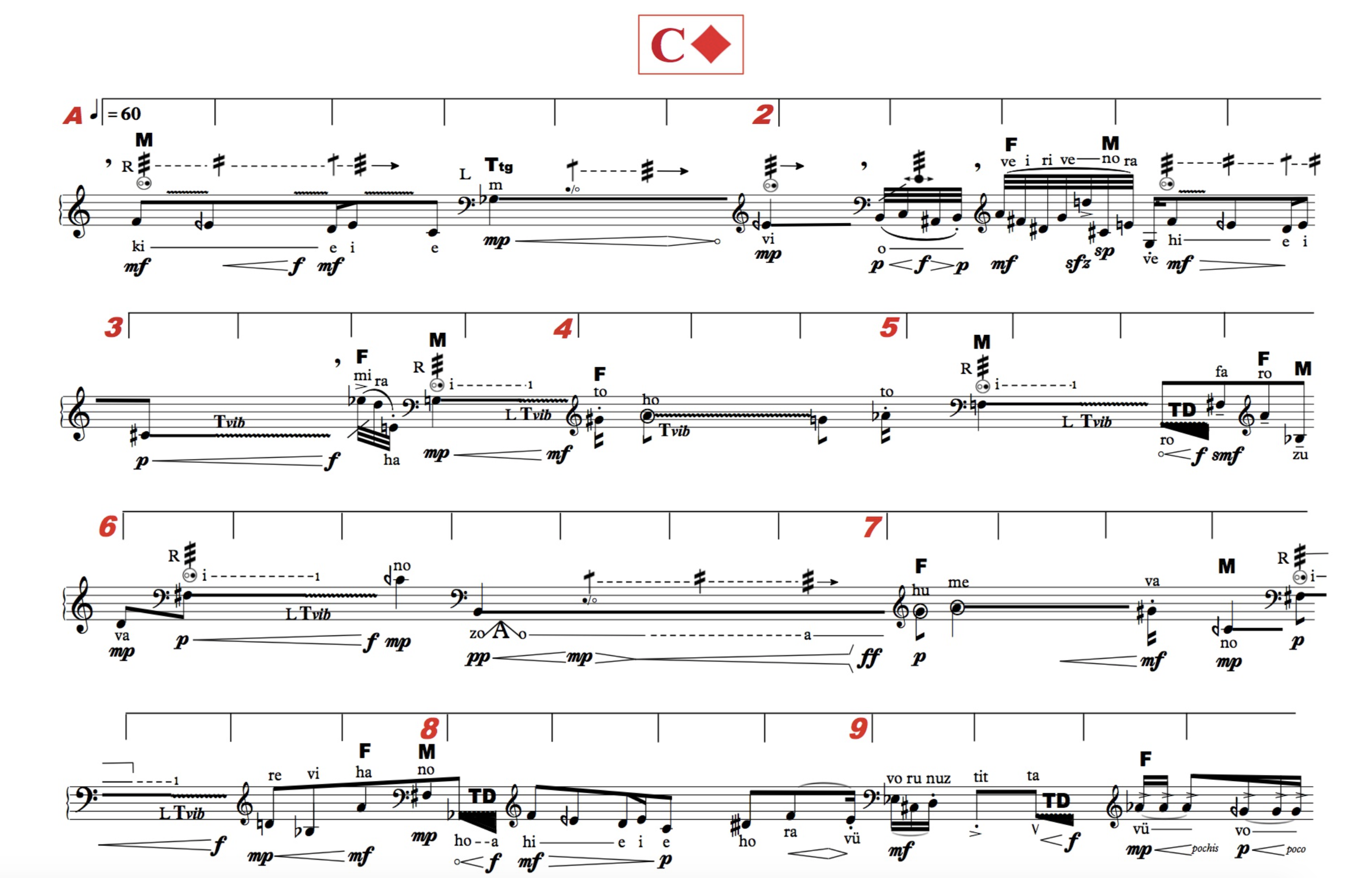 Pollaple Roes
Unlike
the collective flow of the work named Asta
Tushmaq that was composed for the
same ensemble a few years ago, Pollaples Roes (malty flows) has a new
approach in terms of the variety of
coincidental interchanging
compositional formal structure and an open
work of distinguishing both
performers in reversing tempo, time and
unity. The flexible unified formal
structure is sometimes defined by the
composer among a large selection
of musical materials, sometimes selected by
the performers of UMS n JİP,
Javier Hagen and Ulrike Mayer Spohn
who are also composers using the
given methods of building a form for the
work in each performance. The aim of
the composer is to create a
formally changing, contrasting and
surprising work that has a rich and
organic character that is meant to be
unlike another in each
performance, considering the
extreme instrumental and vocal musical
abilities of the performers.
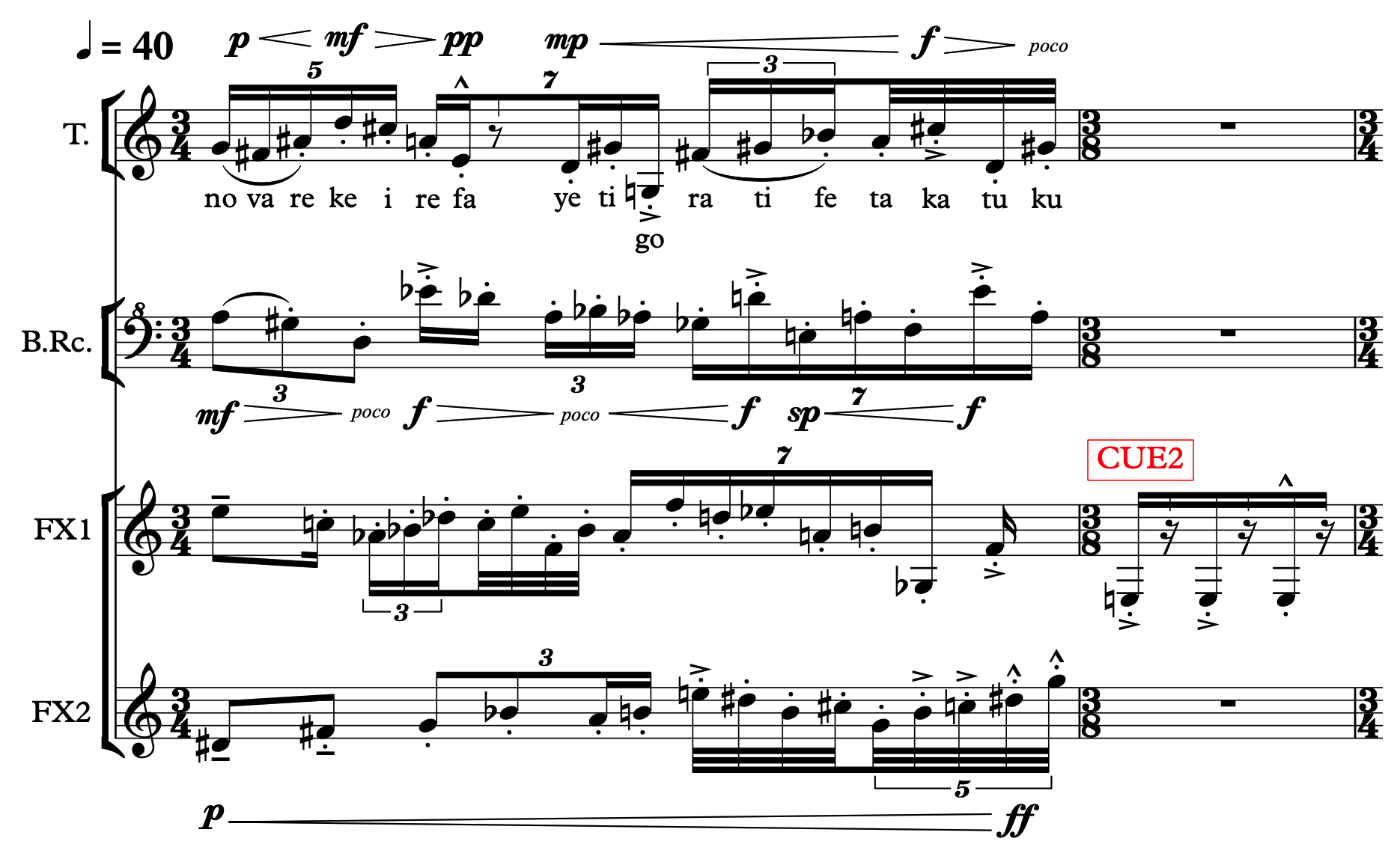 Reverse Readings |
|
MURAT YAKIN |
A graduate of the Istanbul
Technical University Center for Advanced Music
Studies (MIAM), and the University of Memphis,
Murat Yakin worked with
Pieter Snapper, Reuben De Lautour, Hasan
Uçarsu, and Kamran Ince. Yakins compositions
make ample use of electronic resources such as
pre-recorded samples and real-time signal
processing. These compositional methods and
electronic sound worlds are also reflected in
his acoustic compositions. His music received
performances at many leading contemporary
music festivals world-wide, such as the New
Music Concerts in South Africa, the
Ctrl-Alt-Del and Divertimento music festivals
in Istanbul, as well as the Imagine Music
Festival and the New Sound Concert Series in
the US. Currently, Murat Yakin serves as an
Assistant Professor for Composition at the
Baskent University in Ankara.
|
